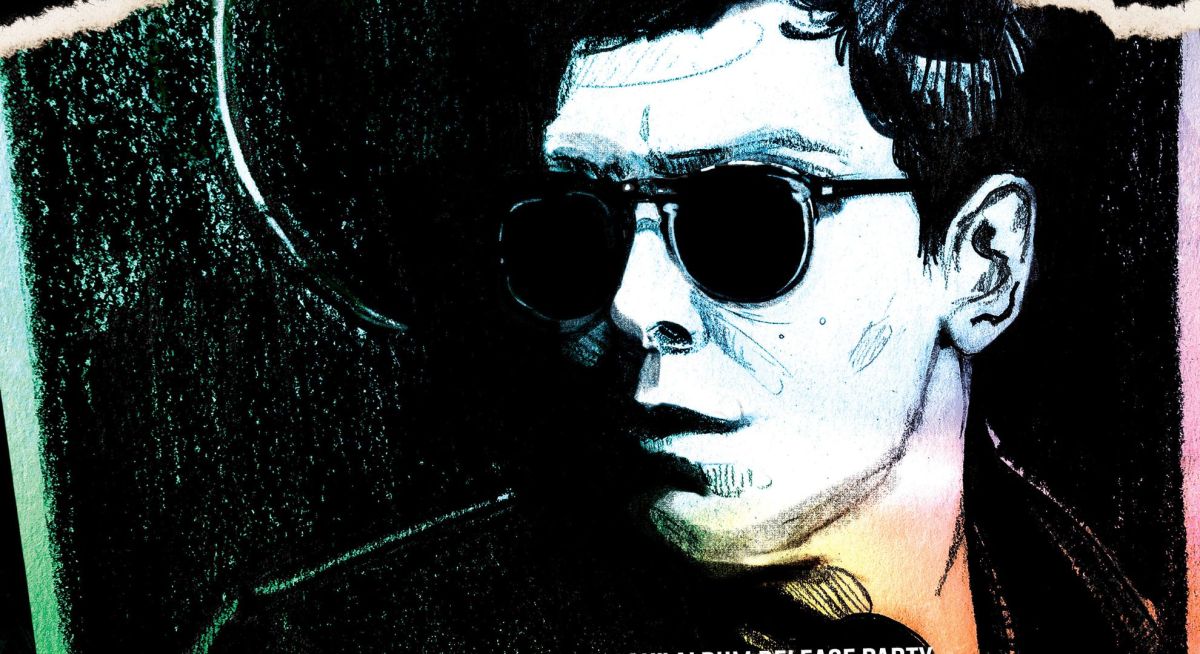David W. Ross, the writer and star of “I Do,” directed by Glenn Gaylord. | GRAVITAS VENTURES
In “I Do,” Jack (David W. Ross, who also wrote the screenplay) is a gay British photographer living in New York. He is single and a surrogate father to Tara (Jessica Tyler Brown), his late brother’s young daughter. Jack’s life hits a major speed bump when his visa expires. Suddenly threatened with deportation, he marries his best friend Ali (Jamie-Lynn Sigler), a lesbian, to get a green card. But things get complicated when he falls in love with Mano (Maurice Compte), an American-born Spaniard, and additional drama arises.
“I Do” scores points about gay rights as difficulties surrounding Jack’s marriage and his relationship with Mano force him to make some tough personal decisions. Gay City News recently spoke by telephone with Ross — who has been an American citizen for about 20 years — about his important immigration-themed melodrama.
Writer, actor David W. Ross tells passionate story about a Brit New Yorker’s immigration woes
The actor-writer explained that he spent nine years working on the script, which was prompted in part by the legalization of marriage equality in Massachusetts in late 2003. Even after nearly a decade, the Defense of Marriage Act’s bar on federal recognition of same-sex marriages means that bi-national gay and lesbian couples still do not enjoy the same immigration rights as married heterosexuals. Ross explained he wanted to explore “the notion of living in the shadows — not fully living your life and not making massive life decisions because your life could be taken away at any moment. These couples want to live a full life and just aren’t able to because of the laws.”
He added, “I found it fascinating and heartbreaking, and wanted to take audiences through the experience that bi-national queer couples in this country go through.”
To do this, Ross’ script has Jack struggling in a variety of his relationships. His wife Ali expresses concerns about their fake marriage, while his boyfriend Mano issues an ultimatum when he needs to return home to Spain for family reasons. Jack also has strong ties to Tara and his brother’s widow Maya (Alicia Witt), which he finds difficult to sever. Faced with a choice between love and family, he is, as Ross described it, “stripped down completely until he has a breakdown and a breakthrough.”
Jack’s options are all life-changing. If he leaves the country, however temporarily, the law prohibits him from easily re-entering America. So, he must choose which “family” is most valuable to him — his lover, his wife, or his niece.
Ross said he wanted to tell a story that would “affect and enrage viewers” —gay and straight — who may not be aware of the extent to which American law continues to discriminate against same-sex couples. Everyone knows gay couples can marry in New York; far fewer know that a gay man or lesbian still can’t get a green card for their immigrant spouse.
“I wanted to make DOMA the real antagonist in the film,” the actor-writer emphasized. In Jack breaking the law to marry Ali, Ross explained, he is not being a bad guy; he is in important respects protesting his lack of options for otherwise staying in the US as a gay man. He can have security in a marriage to Ali that he and Mano would never achieve.
“I’ve heard stories of what people are willing to do or offer — often money,” Ross said. “I’ve heard great experiences and horrible experiences.”
When Jack’s marriage to Ali gets rocky due to her anxiety about being discovered, his next best alternative is impregnating a woman willing to exchange marriage and a green card for her dream of having a baby.
“Desperate times call for desperate measures,” he remarked with a laugh.
Ross’ research included photographing anti-Prop 8 rallies, in his home state of California, and interviewing bi-national couples to understand their struggles. He spoke with lawyers who do pro bono work on immigration cases and learned that 40 percent of bi-national couples have kids together, a statistic that surprises him — and will, no doubt, many others.
Ross lamented the fact that some couples find they have to move to another country to stay together.
“It is not romantic to be in a long distance relationship,” he said. “It’s hard — and expensive. But there are brave couples out there fighting because they realize it is their right.”
Mano was specifically created as a character who could claim Spanish citizenship for several reasons, Ross explained. First, even though Spain is a very Catholic country, it recognizes same-sex marriage, so Jack and Mano have the option of living there in order to stay together. He also felt that American audiences would relate better to a Spanish character than one from France or Italy. Finally, Ross conceded, he finds Spanish men “really sexy.”
On that score, “I Do” was leaving nothing to chance, it would seem. Ross himself oozes plenty of sex appeal in the film — and not just because he plays many of his scenes naked from the waist up. He was apparently playing to type — during the interview, he interjected, “I’m actually shirtless right now!”
Ross followed that moment of titillating levity by getting serious again. The film, he pointed out, opens with Jack announcing in voice-over that he believes in fate, family, and truth and that actions have consequences.
“It was a meditation on what Jack wants,” Ross explained. “What he wants at the beginning of the film, he has lived through by the end, so he knows these things are true.”
Audiences will likely find this truth to be the powerful animating force in “I Do.”
David W. Ross will attend a post-screening Q&A for “I Do” on Friday, May 31. Check out quadcinema.com that day for details.
I DO | Directed by Glenn Gaylord | Gravitas Ventures | Opens May 31 | Quad Cinema | 34 W. 13th St. | quadcinema.com


































